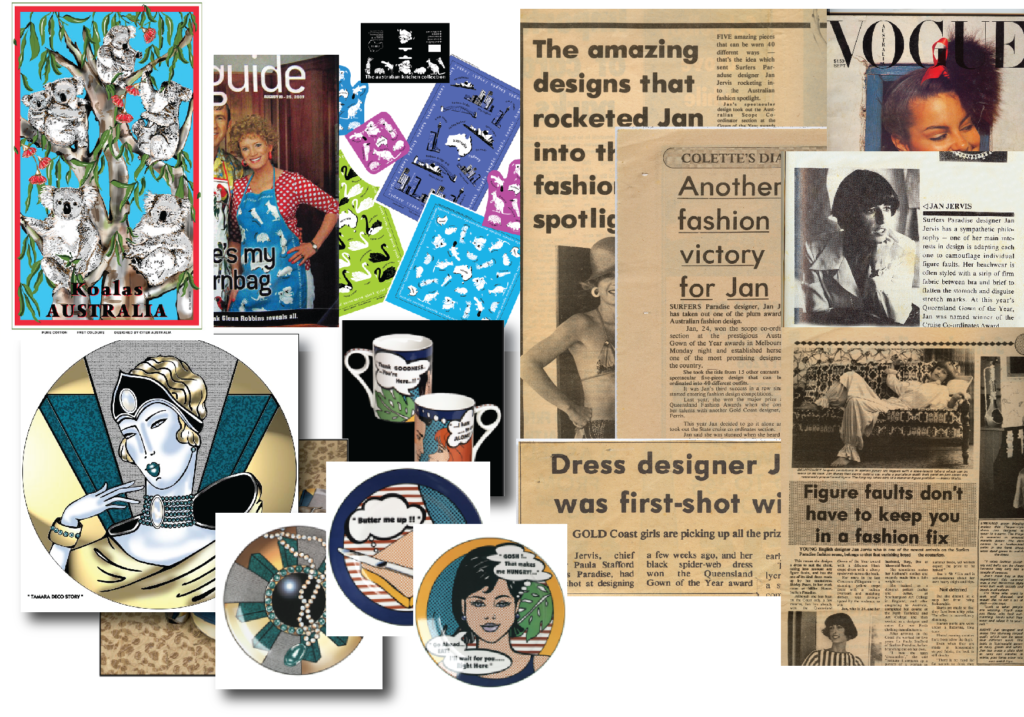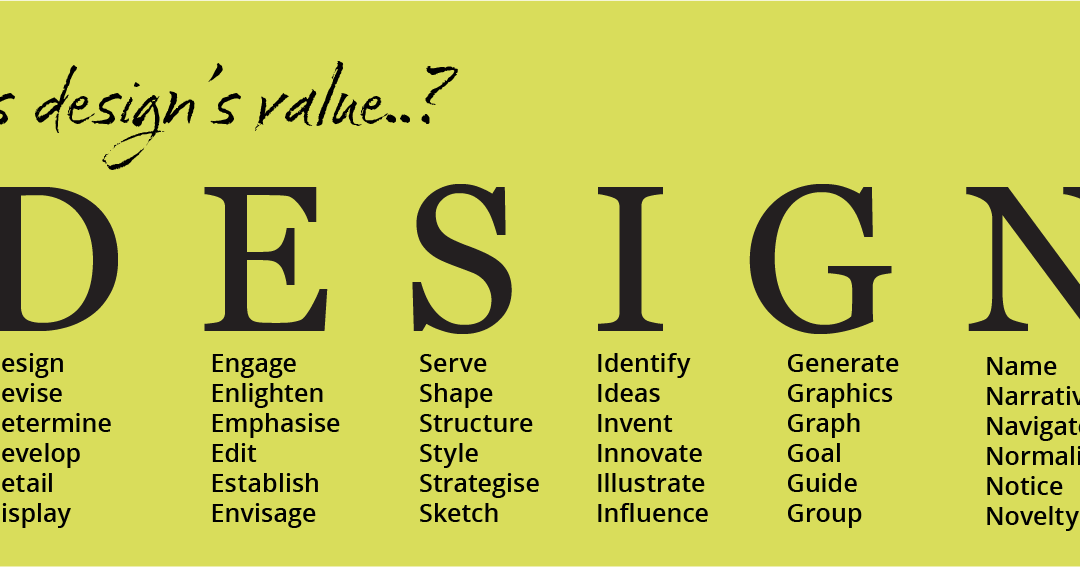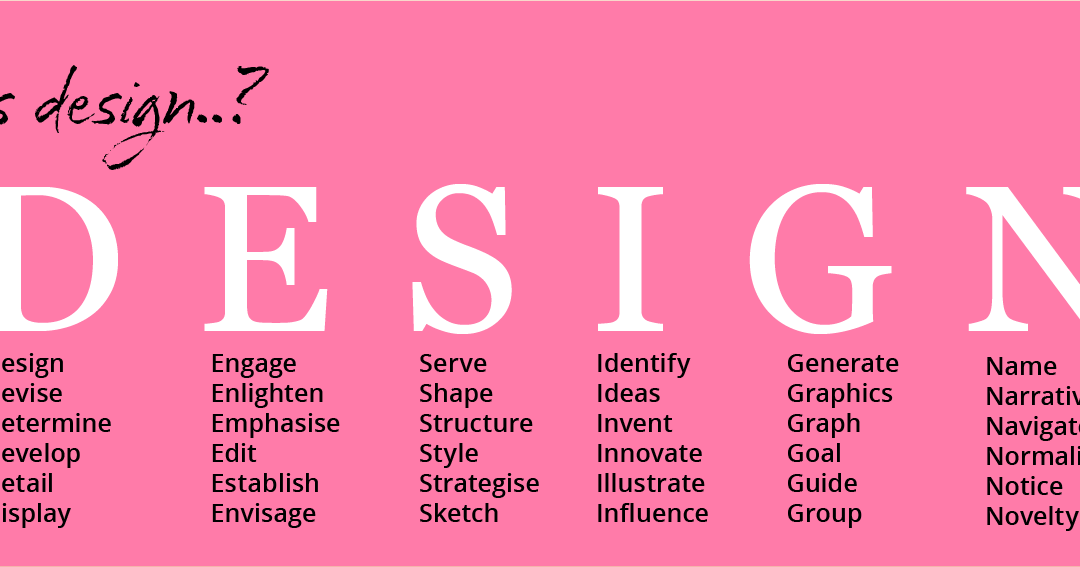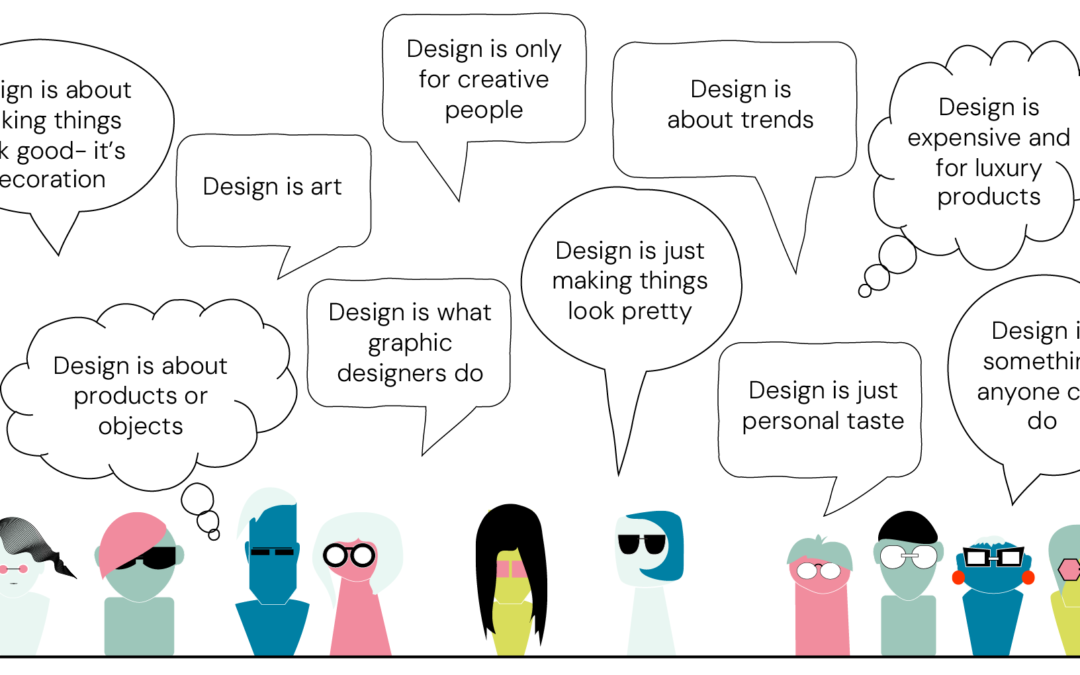Thank you for reading.
I am Dr Jan Jervis, PhD, a Design Advocate, Educator, Researcher, Idea Coach, and, let’s not forget, digital immigrant.
Have you ever tried to summarise who you are in a few words? I found it a real challenge.
I have always disliked being “stereotyped” (e.g., baby boomer). Although I understand why we like to create stereotypes, I feel they can limit us. I try hard not to stereotype other people, although I’m not always successful; I’m a work in progress.
I am also aware of how ironic it is that I spent weeks (months!) agonising over how to “label” myself (and driving family and friends nuts in the process, too).
I am happy with where I landed; it’s not all of me, but I hope it resonates with you.
What is a design advocate?
I love design. I believe we are all born with the ability to design; it is innate to our humanity. Of course, we might not like or want to design, but as humans, we design our lives and how we live, so it is always an option for us (should we choose it).
Design, for me, means excitement about the shape of a teacup, the cut of a T-shirt, or a roof tile, as well as beautiful fabric, innovative visual art, patterns, typography, graphics, and more. Even a beautifully designed system can be awe-inspiring. And, as someone recently reminded me, the ultimate expression of design can be found in nature. Basically, I can get excited by the design of anything and everything!
I am always surprised when people dismiss design as frivolous, arty, or not a “serious” topic. But I shouldn’t be (surprised); it happens all the time.
When I started in design (fashion), it was not a respected career like a doctor or lawyer. All these years later, nothing appears to have changed—that’s a long time for static thinking.
My research indicates that the issue lies in public perception and assumptions about design. It is hard to respect something when most people are unsure of what design is or what it entails.
As a solution, I advocate for a design and digital literacy for non-designers.
That does not mean we must all be trained as designers. Actually, the opposite is true.
It is my dream to see design and digital literacy valued in all roles, not just design, so we can build a global culture of design respect!
What is design for non-designers?
What do I mean by design and digital literacy for non-designers? Let me explain.
Throughout my academic career (over 20 years at university), I have taught design fundamentals to students from various faculties, not just the design faculty.
None of the enrolled business, law or medicine students wanted to become designers. Yet, many became excited about how these skills enabled them to visually communicate their ideas more effectively.
Therein lies my point(s).
- Design and digital knowledge are no longer discipline-specific.
- Anyone creating online content needs a solid foundation in design and digital literacy.
- Design and digital literacy are not the same as being a professional designer.
- Speaking design and digital language is a “bridge” across disciplines.
- We must consciously aim for shared understanding.
I must say defining my experiences, narrowing my skills, establishing “why” I am creating this website, examining “what” I have to offer and “how” best to present it— has taken me much longer to achieve than I ever anticipated (ask my family and friends, they have had to live with me!).
After so many years, I needed to give myself the gift of time. I jokingly called it my “gap” year, but it has taken closer to two!
Still, my design and digital literacy allowed me to converse with a professional web developer and get help when needed. Even with my diverse experience, I had to take the time to understand the gaps in my knowledge and fill them!
Becoming a digital immigrant.
My career was reasonably successful as an award-winning fashion designer, business owner, and graphic and textile designer before the World Wide Web, Facebook, Google, and smartphones ever existed.
I was not born into a technological age. Then, I met a computer and became a digital immigrant, the absolute opposite of a “digital native.” I love the term “digital immigrant”; it always brings a smile to my face.
At the time, I was hesitant about learning the computer (funny how we change; I also used to say I would never let my hair go grey).
In much the same way that AI is currently disrupting our work and lives, and many people feel its contribution is somehow selling out on our human brilliance, I thought the same about learning the computer.
It felt like a “cop-out”, and I was concerned my work might not feel “authentic.”
I now realise that I was not thinking big enough, and what we produce is different, not comparable, but something unique.
My life changed forever once I overcame my limited thinking and combined my design skills with my digital expertise.
I want to add something important here:
- Nothing life-changing ever happens without the help of other people.
- The people who come into your life and completely change your direction are “gifts”.
- I would like to thank those who were part of this life-changing experience for me. I am so grateful to you from the bottom of my heart.
Adobe Photoshop, you changed my life.
I first encountered Adobe Photoshop when it had only one “undo,” but once I understood that it was a tool to help me design, I fell in love and never looked back.
Since then, I have embraced Adobe Illustrator (my favourite) and other excellent software. I have utilised these skills and gained knowledge in various forms, including graphic design, website development, multimedia, and mobile app design.
I went on to spend more than 20 years as an academic at a university, starting as a tutor in my 40s, becoming a lecturer, winning three teaching awards, completing a Master of Multimedia, and finally earning a Doctor of Philosophy (PhD) in communication breakdowns between design and business.
Life’s Third Act.
In 2011, Jane Fonda, then 74, gave a TED Talk about ageing and “Life’s Third Act.”
That YouTube video has had nearly 3 million views, and the points she made deeply resonated with me, which is probably unsurprising as I am living my third act.
Fonda discussed age as a place of “wisdom” instead of decline. She described our “third act” as a time of deep understanding of life and its complexities and how it can bring us to a feeling of “wholeness.”
Our “third act” should be filled with a sense of completeness, fulfilment, authenticity, and being true to oneself.
I love this mindset. Fonda’s presentation refuelled a desire in me that I had been harbouring for some time: to use all the knowledge and skills I have gained over my long career, give back, and help others. After all, there is a saying (although I cannot verify its source) that “knowledge is of no use unless it is shared.”
At this stage in my life, my third act is proving to be very significant.
My design ability, digital skills, and career experience have allowed me to communicate across many disciplinary boundaries, resolve problems caused by misunderstandings, ask tech-related questions with sufficient knowledge, and, even more crucially, understand the answers (usually).
My knowledge enables me to practice discernment because I know enough to recognise if an answer is relevant to a question.
This website, its content, and the newsletter/blog are my “capstone” project. I am gathering all the knowledge, skills, and wisdom I have acquired over the years and sharing it with others to help them.
Wouldn’t it be amazing?
Wouldn’t it be amazing if design, business, and education respected each other’s perspectives, not for the sake of celebrity status, but to design consciously for the greater good of humanity?
I am on a mission to empower non-designers with a foundation of design skills, independent of any specific career, so they we can all thrive in a future workplace where new jobs are constantly emerging and many have yet to be invented.
Ultimately, I would love to see people value design as a human ability, respect those who design professionally, and empower non-designers with a basic foundation of design understanding without requiring them to become designers.
I appreciate that you have taken the time to read this, my first post. It is part of a journey that I hope will involve many mutually satisfying exchanges of design and digital information, skills, and ideas for non-designers.
Until next time,
Jan
18 April 2025
Gold Coast, Australia
Links
- Jane Fonda: Life’s Third Act. https://youtu.be/IHyR7p6_hn0?si=LAws0cBtg9fht35i
- Jan: Handbook for Non-Designers offers my insights into a foundation of design and digital literacy written specifically for non-designers. There is no technical jargon or need to become a designer. Please check it out.





0 Comments